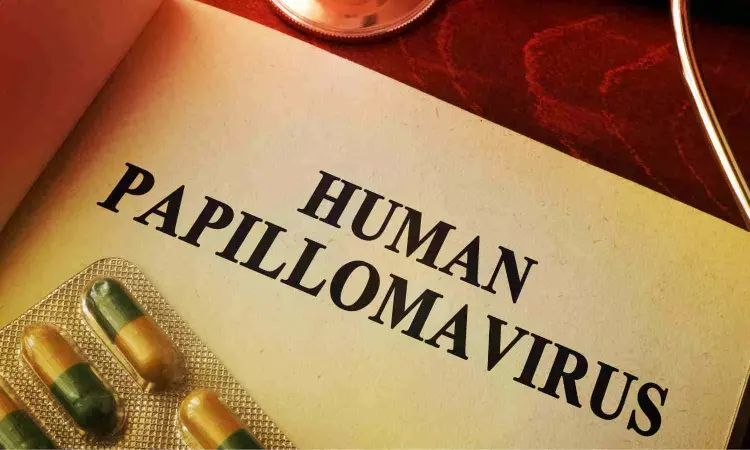- Home
- Medical news & Guidelines
- Anesthesiology
- Cardiology and CTVS
- Critical Care
- Dentistry
- Dermatology
- Diabetes and Endocrinology
- ENT
- Gastroenterology
- Medicine
- Nephrology
- Neurology
- Obstretics-Gynaecology
- Oncology
- Ophthalmology
- Orthopaedics
- Pediatrics-Neonatology
- Psychiatry
- Pulmonology
- Radiology
- Surgery
- Urology
- Laboratory Medicine
- Diet
- Nursing
- Paramedical
- Physiotherapy
- Health news
- Fact Check
- Bone Health Fact Check
- Brain Health Fact Check
- Cancer Related Fact Check
- Child Care Fact Check
- Dental and oral health fact check
- Diabetes and metabolic health fact check
- Diet and Nutrition Fact Check
- Eye and ENT Care Fact Check
- Fitness fact check
- Gut health fact check
- Heart health fact check
- Kidney health fact check
- Medical education fact check
- Men's health fact check
- Respiratory fact check
- Skin and hair care fact check
- Vaccine and Immunization fact check
- Women's health fact check
- AYUSH
- State News
- Andaman and Nicobar Islands
- Andhra Pradesh
- Arunachal Pradesh
- Assam
- Bihar
- Chandigarh
- Chattisgarh
- Dadra and Nagar Haveli
- Daman and Diu
- Delhi
- Goa
- Gujarat
- Haryana
- Himachal Pradesh
- Jammu & Kashmir
- Jharkhand
- Karnataka
- Kerala
- Ladakh
- Lakshadweep
- Madhya Pradesh
- Maharashtra
- Manipur
- Meghalaya
- Mizoram
- Nagaland
- Odisha
- Puducherry
- Punjab
- Rajasthan
- Sikkim
- Tamil Nadu
- Telangana
- Tripura
- Uttar Pradesh
- Uttrakhand
- West Bengal
- Medical Education
- Industry
Bacterial Vaginosis Linked to HPV in Tribal Women: Study emphasizes on Early Screening and Treatment

India: A recent cross-sectional study conducted in Maharashtra, India, has shed light on the association between high-risk human papillomavirus (HPV) and cervico-vaginal infections in tribal women undergoing screening for cervical precancers and cancers.
The study, published in the Indian Journal of Dermatology, Venereology and Leprology, found that 6.5% of sexually active tribal women were infected with human papillomavirus. There was a significant association between bacterial vaginosis, which had a prevalence of 41.5%, and HPV positivity, with co-infections increasing the risk. Cases of candidiasis and chlamydia were also identified, highlighting the importance of early detection and treatment of reproductive tract infections to reduce the risk of cervical cancer.
The vaginal microenvironment plays a crucial role in the infection and persistence of human papillomavirus, a key factor in cervical carcinogenesis. Tribal women, particularly those in Dahanu taluka, Maharashtra, face an increased risk of HPV and cervico-vaginal infections due to factors such as polygamy, poor hygiene, and illiteracy. To better understand this association, Kiran Munne, Department of Child Health Research, ICMR-National Institute for Research in Reproductive and Child Health, Mumbai, India, and colleagues evaluated the prevalence of common cervico-vaginal infections and their link to HPV infection and cervical precancers in this vulnerable population.
For this purpose, the researchers recruited tribal women from Dahanu taluka for a cross-sectional study. Cervical brushing samples were collected and tested for human papillomavirus using the Hybrid Capture 2 method, while polymerase chain reaction was employed to detect Chlamydia trachomatis. Vaginal samples were also collected for gram staining to identify candidiasis and bacterial vaginosis, followed by visual inspection of the cervix using acetic acid.
The study led to the following findings:
- A total of 501 sexually active tribal women were recruited for the study.
- The human papillomavirus (HPV) infection rate among the participants was 6.5%.
- Vaginal smears evaluated by Nugent’s scoring showed bacterial vaginosis in 208 women (41.5%), candidiasis in 30 women (5.98%), and chlamydia in 5 women (1%).
- The prevalence of bacterial vaginosis was higher in women who tested positive for high-risk HPV.
- The presence of clue cells was associated with HPV positivity, suggesting a link between bacterial vaginosis and HPV infection, indicating an increased risk of HPV infection when co-infected with bacterial vaginosis.
The researchers note that the study was limited by the fact that only tribal women were screened, with no screening conducted for other sexually transmitted infections. Additionally, since participants were recruited from healthcare centers rather than through random sampling, this may have impacted the estimates of infection rates.
"Due to regional variations in sexual behaviors and gynecological morbidities, the findings cannot be generalized to tribal women from other regions. Early detection and management of reproductive tract and sexually transmitted infections are crucial in preventing co-infections and reducing the risk of cervical carcinogenesis," the researchers concluded.
Reference:
Munne KR, Birje S, Patil AD, Akula A, Mayekar A, Bhekare G, et al. Association between high-risk human papillomavirus and cervico-vaginal infections in tribal women screened for cervical precancers and cancers in Maharashtra, India: A cross-sectional study. Indian J Dermatol Venereol Leprol. doi: 10.25259/IJDVL_1501_2024
Dr Kamal Kant Kohli-MBBS, DTCD- a chest specialist with more than 30 years of practice and a flair for writing clinical articles, Dr Kamal Kant Kohli joined Medical Dialogues as a Chief Editor of Medical News. Besides writing articles, as an editor, he proofreads and verifies all the medical content published on Medical Dialogues including those coming from journals, studies,medical conferences,guidelines etc. Email: drkohli@medicaldialogues.in. Contact no. 011-43720751


